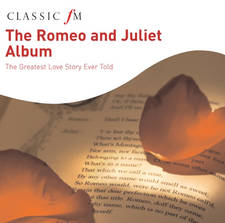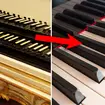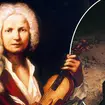The Full Works Concert - Wednesday 27 November 2013
Brahms' A German Requiem is the major work concluding tonight's Concert.
Tonight's concert opens with Karl Jenkins' popular string piece, Palladio. It was inspired by the 16th century architect of the same name, who was commissioned to build beautiful villas and churches for the wealthy Italian families of his day. Listening to the piece, it's almost as if the rigid, repetitive string lines that form its building blocks are a reflection of the aesthetic beauty within a defined architectural framework that characterises Palladio's buildings.
In his late 40s, the French composer Gabriel Fauré fell in love with the singer Emma Bardac. The affair inspired a burst of creativity and a new originality in the music of the already married composer. He wrote the Dolly Suite for piano duet between 1894 and 1897 and dedicated it to Bardac's daughter Hélène, known as "Dolly". Some people suspected that Fauré was Dolly's father. We hear it tonight in an arrangement for flute and piano.
Antonio Vivaldi's Concerto in C major for two trumpets is remarkable for the fact that virtually nothing is known about it. The source of the work is a single manuscript which was first edited for publication only in 1950. The vibrant outer movements are flashy and fanfare-like while the central slow movement more or less provides a short linking bridge between them.
To understand why Brahms called his Requiem 'German', we need to consider the nature of religious faith in Germany at his time. Here was a country where Luther had come to prominence, and where Catholicism was by no means the sole expression of Christian belief. By choosing Luther as his inspiration, and describing this work overtly as A German Requiem, Brahms was expressing what it meant to be German. He was also setting direct biblical passages, rather than choosing as his text the liturgies of a particular church. A German Requiem is not primarily a Mass for the dead; instead, it is intended as comfort for those who mourn and who feel the pain of the death of others. By the time he began writing the work in 1865, Brahms had just experienced such loss extremely personally: his mother had died that very same year.
Karl Jenkins: Palladio
London Philharmonic Strings
Gabriel Faure: Dolly Suite
Flute: Ian Brown
Piano: Susan Tomes
Antonio Vivaldi: Concerto in C major for 2 Trumpets
Trumpets: John Wilbraham, Philip Jones
Neville Marriner conducts the Academy of St. Martin in the Fields
Johannes Brahms: A German Requiem
John Eliot Gardiner conducts the Monterverdi Choir and the Orchestre Revolutionnaire et Romantique













